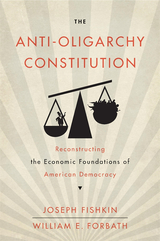7 start with R start with R
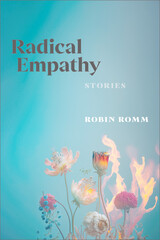
Varied in subject but tethered by their interest in prospecting the border between self and other, Robin Romm’s short stories relay the inner lives of contemporary women: the young mother who wonders if her marriage has become complacent while fantasizing about her ineffectual contractor, the expecting single mom who begins an affair with a man whose girlfriend is pregnant by the same donor’s sperm while trying to figure out how she will afford motherhood, both financially and emotionally. In the book’s eponymous story, a college student sells her “Ivy League” eggs to a celebrity, and — though she first ridicules the elitist marketing and overt capitalism of the reproductive economy — her roommate encourages her to see this act as not one defined by commerce but by “radical empathy,” “the longing for children elemental, like the desire for sight.”
A testament to her keen vision, Romm’s critique of “radical empathy” salvages authentic meaning from the self-serving banalities of therapy speak. We have children because we want them; we foist life on them, though we don’t understand our own lives, hoping their existence will provide a cipher to ours. And yet — it is radical, isn’t it, to love the future so much that we manifest new beings from nothing but our aging bodies that we imagine the next generation’s memories and collapse time into a perpetual present? Romm’s stories perch on the ledge of the moment, vibrant as photographs where “we’re all of us smeary with movement, with what is about to occur.”

Regally bearing its Latin title, Rara Avis captures in sparse, moving verse both the splendor and the loneliness of what it means to be exceptional — a rarified specimen, a strange bird. A son, a husband, and now a father, seasoned poet Blas Falconer explores the relationships among men — between peers, lovers, parents and children — to consider and question existing models of authority and power. Falconer’s lucid but feeling gaze reveals social complexities with searing and graceful imagery, asking what it means to live outside the heteronormative experience while existing as a man, simultaneously a casualty and a participant in the project of masculinity.
These poems carefully delineate the casual cruelties of queer youth and the beautiful and bitter revelations of adulthood. The wisdom propelling Rara Avis is the knowledge that we are each of us that rare bird; we share our singularity. Everyone has a pancreas, but only one organ matters when Falconer learns his father is afflicted. Alchemized by love, one thing, unlike any other, becomes all things. “All day, everything, / no matter how / small, makes me // think of it” … The bee / crawling in / blossoms // scattered on / the glass/tabletop. The sound of // a pitcher fill- / ing slowly / with water.”

In her debut collection, Reliquary, Abigail Wender addresses losing a brother to prison and, ultimately, opiate addiction. The text also considers womanhood, motherhood, and marriage in lyric poems that confront the complicated nature of grief, the effects of illness on family, and how love—even bliss—figure into grief’s equation. The collection suspends time, as the speaker weaves between flashbacks and the present, assembling fragments and vignettes of her childhood and marriage. In the book’s moments of solace and interiority, such as in the poem, “Hiking,” Wender contemplates how to hold on and to what. In this particular poem’s reflection on forgiveness, the speaker asks “Are there words for us, / high on an uppermost branch?,” and the collection responds with a resounding yes.
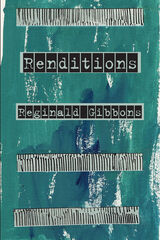
In Renditions Reginald Gibbons conducts an ensemble of poetic voices, using the works of a varied, international selection of writers as departure points for his translations and transformations. The collection poses the idea that all writing is, at least abstractly, an act of translation, whether said act “translates” observation into word or moves ideas from one language to another. Through these acts of transformation, Gibbons infuses the English language with stylistic aspects of other languages and poetic traditions. The resulting poems are imbued with a sense of homage that allows us to respectfully reimagine the borders of language and revel in the fellowship of idea sharing. In this tragicomedy of the human experience and investigation of humanity’s effects, Gibbons identifies the “shared underthoughts that we can (all) sense:” desire, love, pain, and fervor.
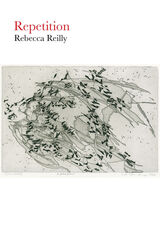
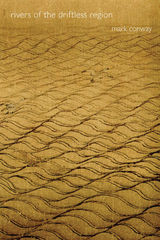

James Allen Hall returns to poetry with Romantic Comedy, a sophomore collection sounding the parameters of genre to subvert cultural notions of literary value and artistic legitimacy. What realities do stories authorize, and which remain untold? “This story,” they profess in “Biography,” “is mine: there was / a wound, then a world.” Rather than playing into the attention economy’s appetite for sensationalism, Hall’s poems resist the formulaic while paying homage to the oeuvre, a formal balancing act that celebrates queer life.The poems create liberatory narratives that break constraints or speak through them. Hall parses music from the blizzard — as when “one year / [they] watched the snow / pile to [their] door / all December, all / January,” “the year [they] wanted / to die,” and, faced with winter’s architecture, “learned / another song. Sang / another way.” Whether grieving the death of their father, documenting the survival of sexual assault, interrogating the scripts of addiction, or revisiting an ’80s crime thriller, Hall’s second collection constantly affirms the ingenuity of self-definition as a technology of survival.
READERS
Browse our collection.
PUBLISHERS
See BiblioVault's publisher services.
STUDENT SERVICES
Files for college accessibility offices.
UChicago Accessibility Resources
home | accessibility | search | about | contact us
BiblioVault ® 2001 - 2024
The University of Chicago Press



